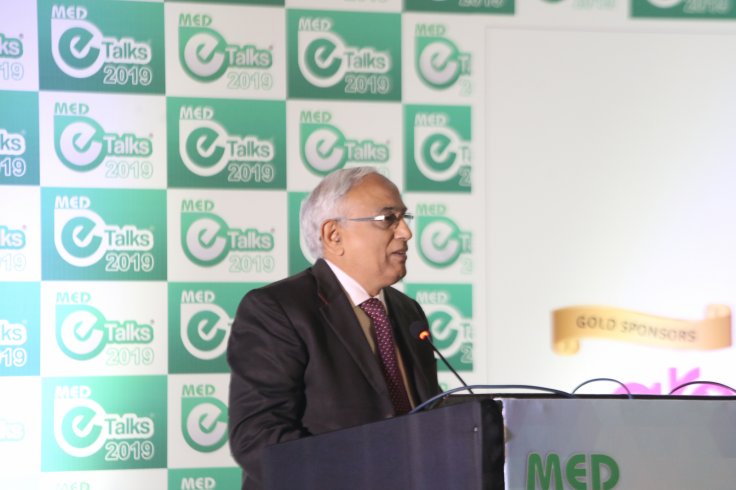Healthcare on tech highway: Med-e-talks focuses on innovation, access and misinformation

Technology is fast transforming healthcare systems around the globe. Big game-changers like gene editing, precision medicine, virtual reality and telehealth are all catching up. A future where drones drop medicines at homes is round the corner. Amid these fast-paced changes all stakeholders, more so the patients, face various challenges. The added trouble is that things are moving way too fast in the healthcare business.
Like all other sectors, the healthcare industry is also warming up to the need to address the information vacuum in key areas. Only rapid technological advancements and immediate adaptation of technology can help countries with large rural populations in the tough task of providing healthcare access to all.
The annual healthcare conference ‘Med-E-Talks 2020’, which is being held in Bangalore, India, this year, brings together experts in various fields to deliberate on the dramatic changes the sector will see in the coming years. The Conference, which is organised by Anvita Tours2health, will see an assembly of experts including technology innovators, pioneers and early adopters of technology, social engineers and leaders of business.
Healthcare in rural communities
The Conference, which is held on January 26, will be attended by hospital CEOs, COOs, promoters, doctors, hospital administrators, hospital quality managers, marketing professionals, digital marketing professionals, media professionals and researchers and academics.
The theme of this year’s Med-e-talks is ‘Healthcare on Tech Highways’. The sessions will focus on discussions that help understand where healthcare is headed given the rapid technological changes in the coming years.

Pixabay
“Despite coming from the rural regions, many doctors do not go back to their roots for providing the healthcare to the rural communities”, says Hemanth Radhakrishnan, the Managing Director of Anvita India, which organises the conference.

Med-e-talks 2019 conference
Need for data integration
Technological penetration is an ongoing process and one of the important parts of it
comes under data integration, he explains. Big Data and cloud are something that can change the game altogether in a country like India. What happened during the Nipah Virus scare can be stopped in this information age. Hemanth also believes that having data in a space where it is accessible makes advances in healthcare easier. He says that Med-e-talks aims to make technology a part of healthcare.
Two countries that offer useful insights are South Korea and the United States. The sourcing of information from the cloud has been able to help several people in these countries. Technology in healthcare is not just 3D printing and prosthetics today, but it has become much bigger because of better connectivity. Being able to connect from a rural household in Bangladesh or India to the expert in USA is connectivity, something that couldn’t be achieved several years ago.
Data has most definitely transformed this field. With several industries collaborating their efforts in turning the medical field to reach the micro-levels of the society, there has been a change in the market. How is technology going to change the rural parts of Asian countries?
Personalized medicine
Medicine has started to become personalized. Access to information and doctors is just a chat box away and medical care is just a click away. But do rural people know about this? South Korea is leading the way in bringing together Artificial Intelligence and Big Data into healthcare support. As many as 97 percent the people are supported with insurance. Even tourists and immigrants enjoy the benefits.
Along with the big advances in technology and connectivity, there are also newer problems to tackle. Data misinformation and the spread of disinformation about healthcare ant treatments continue to vex the industry.
The ‘Med-e-talks’ conference deals with aspects like innovation in healthcare, access to information, and the perils of misinformation. The panel discussion is focused on ‘Combating medical misinformation through data journalism’ wherein the experts discuss possible solutions to the hazards of misinformation.

Boom in medical tourism
Radhakrishnan says that technology can create a boom in medical tourism in countries like India. And this sector is going to see a transformation too. Rather than medical tourists seeking traditional medicines and simple procedures, the vistas will expand with the arrival of augmented reality and virtual reality in medicine.
The conference tackles several potholes in the highway to the betterment of the healthcare industry in India. says John Phillip, Chief Operating Officer of Anvita India. “One major aspect that needs to be addressed is the digital disruption and the conference is hoping to come to a conclusion with that,” says Philip.
